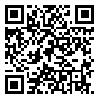Volume 28, Issue 2 (4-2025)
J Arak Uni Med Sci 2025, 28(2): 0-0 |
Back to browse issues page
Download citation:
BibTeX | RIS | EndNote | Medlars | ProCite | Reference Manager | RefWorks
Send citation to:



BibTeX | RIS | EndNote | Medlars | ProCite | Reference Manager | RefWorks
Send citation to:
shahrjerdi S, geramipour Z. The effect of kinesiotype and ankle strengthening exercises with bosu ball on pain, balance and big toe angle in women with hallux valgus. J Arak Uni Med Sci 2025; 28 (2)
URL: http://jams.arakmu.ac.ir/article-1-7773-en.html
URL: http://jams.arakmu.ac.ir/article-1-7773-en.html
1- Arak University , s-shahrjerdi@araku.ac.ir
2- Arak University
2- Arak University
Abstract: (30 Views)
Background and purpose: hallux valgus is one of the common foot deformities that causes external deviation of the first toe and progressive semi-dislocation of the first metatarsophalangeal joint. The purpose of this study was to investigate the effect of kinesiotype and ankle strengthening exercises with bosu ball on pain, balance and big toe angle of women with hallux valgus.
Materials and methods: This clinical trial study was conducted with a pre-test and post-test design. First, 45 women with crooked thumbs and flat feet were selected by available sampling method, then randomly divided into three kinesiotape groups (four weeks, three sessions per week, each session for 24 hours), kinesiotape with strengthening exercises. Ankles with bosu ball (four weeks, three sessions per week, each session for 30 minutes of exercises and 24 hours of band application) and control group (did not receive any intervention) were divided. Research tools including VAS index, stork test and goniometer were used to measure pain, balance and big toe angle, respectively. Data analysis was done with one-way ANOVA at a significant level (P ≥ 0.05).
Findings: After performing the exercises, comparing the data between the two groups, before and after 4 weeks, there was a significant difference in the variables of pain, balance, and hallux valgus angle in the two groups of kinesiotape and kinesiotape along with the strengthening exercises of Boussou bathop compared to The control group showed (P=0.001).
Conclusion: It seems that in order to correct hallux valgus and improve pain and balance in women, it is possible to use the combined program of tip and ankle strengthening exercises with bosu ball.
Materials and methods: This clinical trial study was conducted with a pre-test and post-test design. First, 45 women with crooked thumbs and flat feet were selected by available sampling method, then randomly divided into three kinesiotape groups (four weeks, three sessions per week, each session for 24 hours), kinesiotape with strengthening exercises. Ankles with bosu ball (four weeks, three sessions per week, each session for 30 minutes of exercises and 24 hours of band application) and control group (did not receive any intervention) were divided. Research tools including VAS index, stork test and goniometer were used to measure pain, balance and big toe angle, respectively. Data analysis was done with one-way ANOVA at a significant level (P ≥ 0.05).
Findings: After performing the exercises, comparing the data between the two groups, before and after 4 weeks, there was a significant difference in the variables of pain, balance, and hallux valgus angle in the two groups of kinesiotape and kinesiotape along with the strengthening exercises of Boussou bathop compared to The control group showed (P=0.001).
Conclusion: It seems that in order to correct hallux valgus and improve pain and balance in women, it is possible to use the combined program of tip and ankle strengthening exercises with bosu ball.
Send email to the article author
| Rights and permissions | |
 |
This work is licensed under a Creative Commons Attribution-NonCommercial 4.0 International License. |






